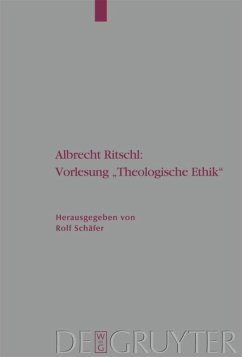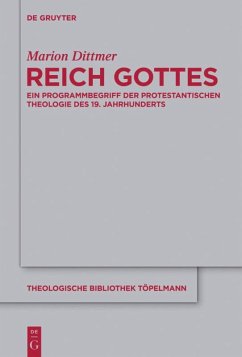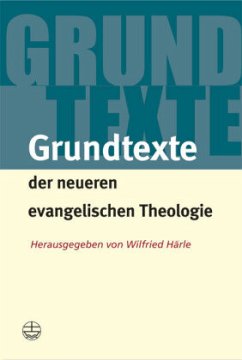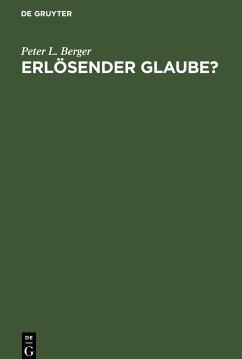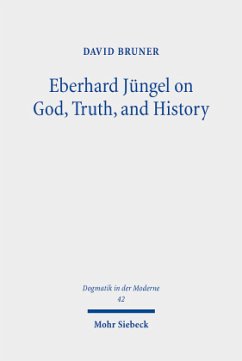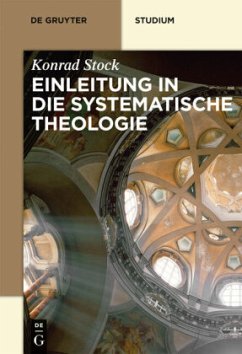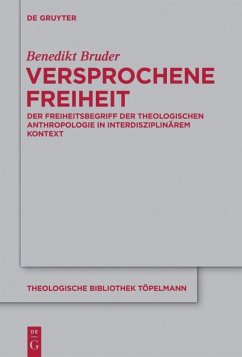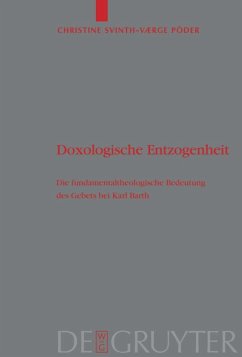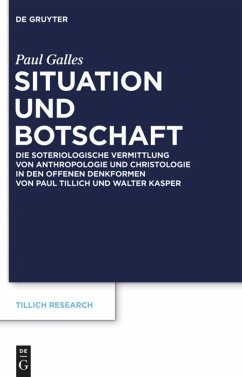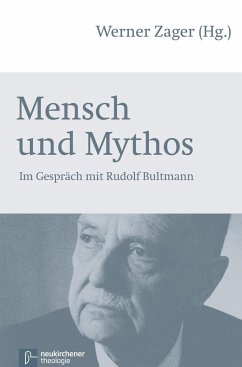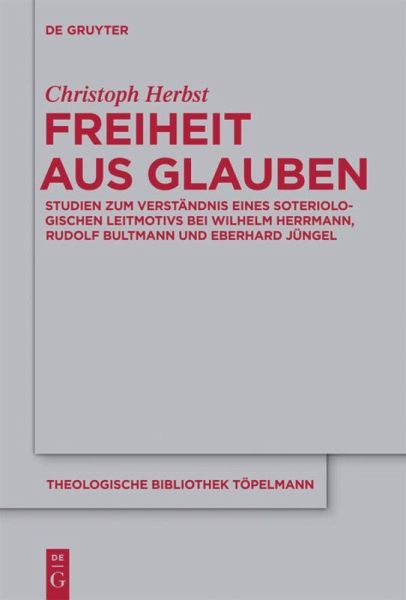
Freiheit aus Glauben
Studien zum Verständnis eines soteriologischen Leitmotivs bei Wilhelm Herrmann, Rudolf Bultmann und Eberhard Jüngel

PAYBACK Punkte
0 °P sammeln!
In the tradition of reformatory theology â??freedomâ? is a leitmotiv for the evolvement of the importance of Christianfaith for salvation. Christoph Herbst studies the understanding of â??freedom through faithâ? in three 19th- and 20th-century protestant classics. The detailed analysis of the concepts laid out by Wilhelm Herrmann, Rudolf Bultmann and Eberhard Jüngel reveals an extensive consensus in the theological controversy:faith frees modern man from the fixation on objectivising rationality and the problematic effects it has on how he deals with himself and the world.
In der Tradition reformatorischer Theologie ist "Freiheit" ein Leitmotiv für die Entfaltung der Heilsbedeutung des christlichen Glaubens. Zugleich steht Freiheit auch im Zentrum des neuzeitlichen Selbstbewusstseins.
Christoph Herbst untersucht drei protestantische Klassiker des 19. und 20. Jahrhunderts auf ihr Verständnis der "Freiheit aus Glauben". In eingehenden Analysen der systematisch-theologischen Entwürfe von Wilhelm Herrmann, Rudolf Bultmann und Eberhard Jüngel werden erhebliche Differenzen, vor allem aber ein überraschender Konsens sichtbar: Der Glaube befreit den neuzeitlichen Menschen von der Fixierung auf objektivierende Rationalität und ihre problematischen Folgen für seinen Selbst- und Weltumgang.
In den Theologien Herrmanns, Bultmanns und Jüngels, die diese These auf je eigene Weise entfalten, wird eine bemerkenswerte Problemkontinuität seit dem Ende des 19. Jahrhunderts sichtbar. Herbst plädiert dafür, die derart profilierte Zentralstellung der "Freiheitaus Glauben" in einer "Theologie der Freiheit" weiterzuführen, um den christlichen Glauben unter neuzeitlichen Bedingungen zu plausibilisieren.
Christoph Herbst untersucht drei protestantische Klassiker des 19. und 20. Jahrhunderts auf ihr Verständnis der "Freiheit aus Glauben". In eingehenden Analysen der systematisch-theologischen Entwürfe von Wilhelm Herrmann, Rudolf Bultmann und Eberhard Jüngel werden erhebliche Differenzen, vor allem aber ein überraschender Konsens sichtbar: Der Glaube befreit den neuzeitlichen Menschen von der Fixierung auf objektivierende Rationalität und ihre problematischen Folgen für seinen Selbst- und Weltumgang.
In den Theologien Herrmanns, Bultmanns und Jüngels, die diese These auf je eigene Weise entfalten, wird eine bemerkenswerte Problemkontinuität seit dem Ende des 19. Jahrhunderts sichtbar. Herbst plädiert dafür, die derart profilierte Zentralstellung der "Freiheitaus Glauben" in einer "Theologie der Freiheit" weiterzuführen, um den christlichen Glauben unter neuzeitlichen Bedingungen zu plausibilisieren.





